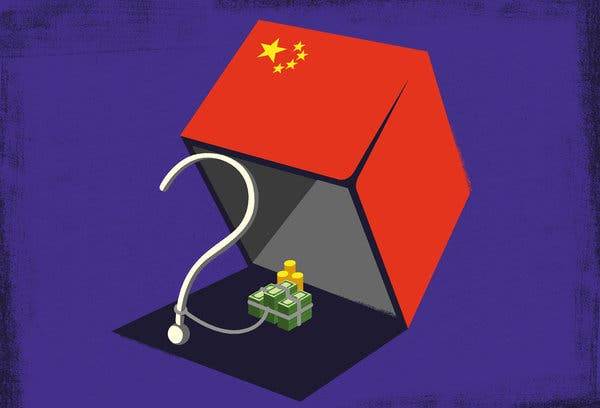The Made-In-China DNA In African Fintech Looms Larger Than It Looks

It took some time to get off the ground but once it got going in Kenya, M-Pesa soared and soared relentlessly – hitting stratospheric levels of success. Today, it’s a global reference point for the kind of outsized impact that can be derived from essentially turning even the most basic feature phone into a bank account.
Having driven financial inclusion in Kenya to nearly 90 percent and inspired the rollout of many other mobile money/mobile wallet services in Africa and beyond, M-Pesa is largely considered a masterstroke orchestrated by Kenya’s largest telco, Safaricom.
The telco typically gets all the credit for developing M-Pesa, which currently commands near-100 percent market share in Kenya while out-doing local banks in terms of transaction volume.
So, it usually goes unmentioned that Safaricom actually used a lot of help from Huawei, the Chinese technology giant. In fact, Safaricom established M-Pesa using an enterprise solution provided by Huawei Technologies. And that’s about one of the oldest traces of Chinese DNA that is found in the core of African fintech.
Today, fintech is where it’s all happening in Africa’s tech startup ecosystem, with the sector witnessing an unrivalled influx of capital and scoring important milestones, from big-money exits to freshly-minted unicorns.
With more than half the African population still unbanked amid the inaccessibility of the formal financial system, investors are increasingly betting on a mobile-fuelled financial revolution buoyed by increasing access to mobile phones and other digital channels found to appeal to a largely young population.
However, much of the ‘investor buzz’ continues to be centred around the moves being made by Silicon Valley or Western backers, even though closer observation suggests that the Chinese fingerprint in African fintech looms much larger than acknowledged.
A quiet Chinese revolution grips African consumer fintech
Evidently, China’s tech giants are driving a quiet revolution in African fintech with what appears to be a keen interest in mobile payment apps and digital wallets that have the potential to become ubiquitous among individual users, by enabling peer-to-peer (P2P) payments, deposits, transfers, bill payments, and more.
This Chinese push seems like a key departure from the approach adopted by Western investors which seems more suited to less-commoditised, or more-holistic, or business-facing fintech ventures.
As it is, the made-in-China stamp, though somewhat less conspicuous and less boisterous, is spreading in African fintech.
For instance, the earlier-mentioned Huawei has seen its core business of building out telephony infrastructure/telecommunication gear and selling smartphones suffer since the US-China tech war brought sanctions.
And to keep its footing, Huawei has found a Plan B in selling a broad array of enterprise solutions and services. Indeed, Huawei has recently positioned itself to provide its network customers with the technology to run mobile payment applications in as many as 19 countries.
Just as Huawei’s fingerprints can be found all over M-Pesa upon closer examination, the Chinese tech firm now also powers Ethiopia’s TeleBirr, the mobile money service launched in May by the former state-owned monopoly, Ethio Telecom. Interestingly, TeleBirr reportedly surpassed 1 million customers within a fortnight of its launch.
Furthermore, Huawei’s mobile wallet partners in Africa, such as Vodafone, Vodacom and Teasy Mobile, are available in several African countries including Nigeria, Tanzania, Zimbabwe, the Democratic Republic of Congo, Kenya, Ghana, and Lesotho.
Apart from Huawei, Transsion, a company based in Shenzhen (the technopolis dubbed “China’s Silicon Valley”) has in recent times made a move for African fintech as part of efforts to create and extract more value from its enviable position as Africa’s largest smartphone seller.
In November 2019, Transsion invested in PalmPay in a USD 40 Mn funding round and revealed plans to have the PalmPay app, which currently serves Nigeria and Ghana, pre-installed on Transsion’s mobile phone brands: Tecno, Infinix and Itel. PalmPay is also vying for market share in the mobile money/mobile payments market.
In addition, Ant Group’s Alipay – owned by the famous Alibaba Group Holding co-founded by Chinese billionaire, Jack Ma – has a fintech partnership in place with South Africa’s leading telco, Vodacom.
Last year, it was revealed by Vodacom that Alipay is powering VodaPay, a super app developed by the South African telco that promises to “drive financial inclusion and economic growth.”
More of the ever-expanding Chinese footprint in African consumer fintech is also found in the rapid rise of OPay. Currently, OPay claims it runs the largest non-bank mobile money platform in Nigeria seeing as much as USD 2 Bn in monthly transactions supported by a 300,000-strong agent network.
Zhou Yahui, the billionaire founder of Beijing-based Kunlun Technology, is behind OPay, which was developed by Kunlun’s Opera web-browser unit. The Nigeria-based startup’s backers also include SoftBank and Meituan, and reports of a USD 400 Mn fundraise that will value OPay at USD 1.5 Bn are rife. That’s quite impressive given that the startup only launched in 2018.
That’s yet more indication of renewed, concerted Chinese interest in unearthing value by bringing large swathes of the continent’s lower-income population into the formal banking environment.
Similar to how pre-paid SIM cards democratised cellular telephony for millions of Africans initially cut off due to the costly nature of the earlier-used post-paid model, there’s value to be had in making payments and e-banking (featuring loans, insurance and other essential products) available, even via low-fi channels, to a historically disadvantaged demographic, which actually represents a large population.
And China’s tech giants seem to be going all-in with big bets already placed on this under-captured spectrum of African fintech.
Featured Image Courtesy: The New York Times